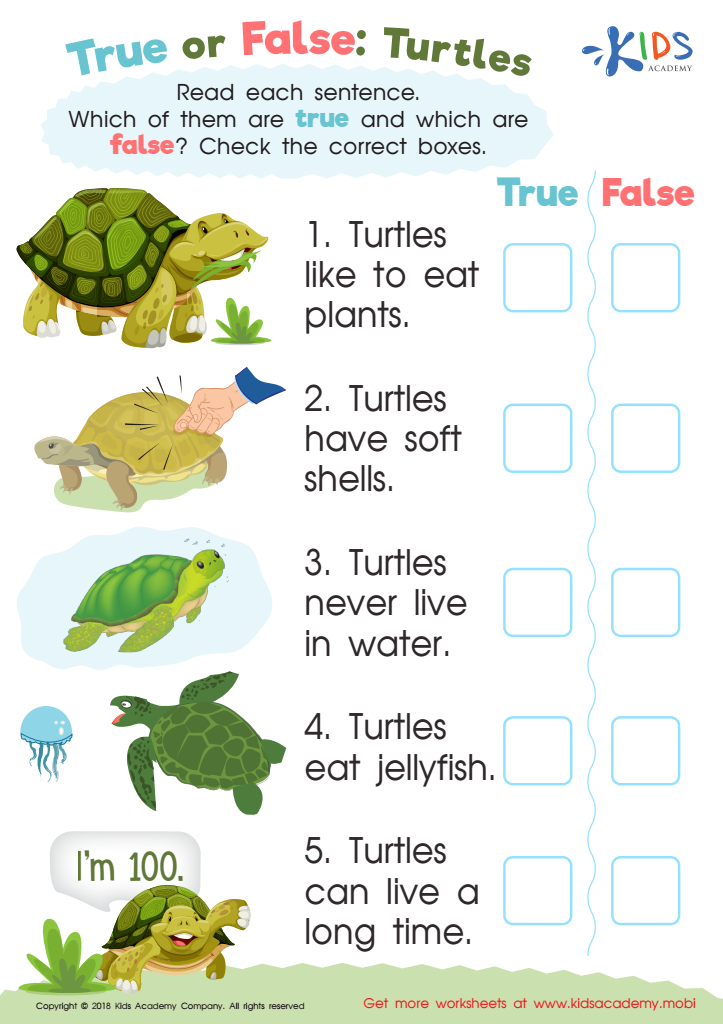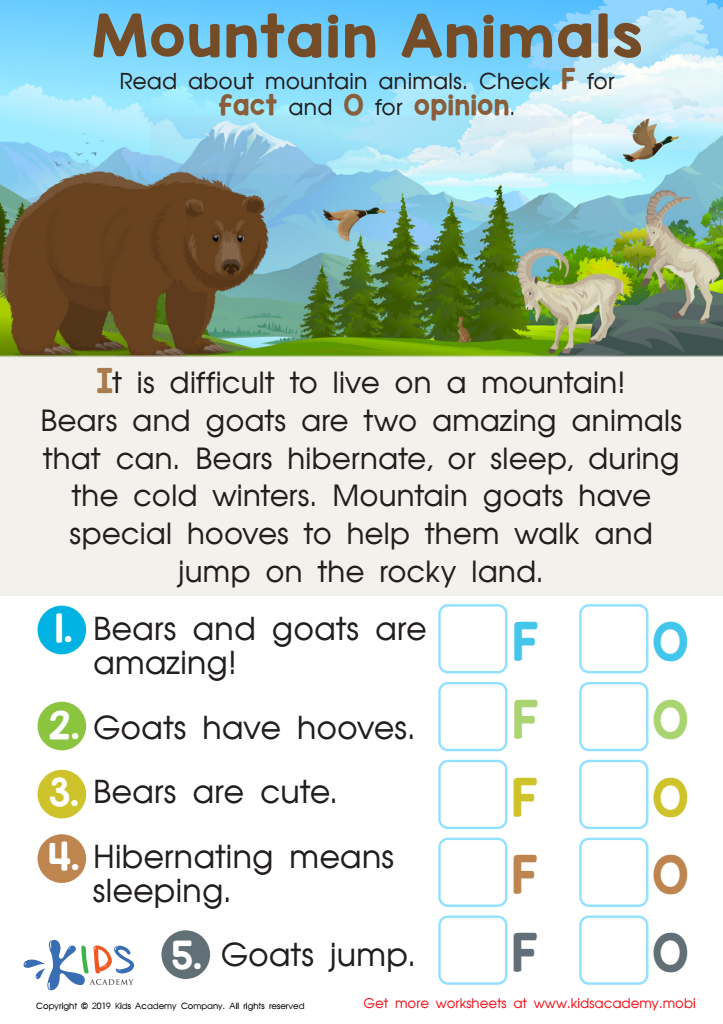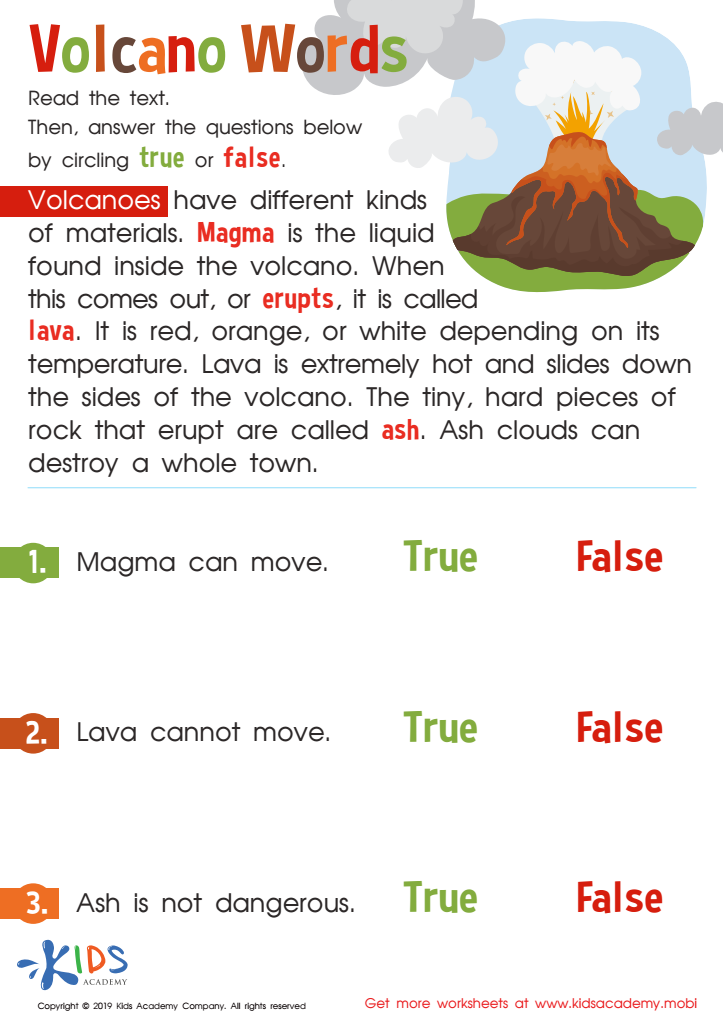Reading practice Reading Non-Fiction Worksheets
4 filtered results
-
From - To
Enhance your child's reading skills with our engaging Non-Fiction Worksheets designed for focused reading practice! Perfect for early learners, these worksheets feature captivating texts that spark curiosity while fostering comprehension. Students will explore various topics, developing critical thinking and analytical skills essential for academic success. Each worksheet includes questions that challenge kids to summarize, identify key details, and make connections with real-world concepts. With vibrant visuals and age-appropriate content, our resources make learning enjoyable and effective. Visit Kids Academy to access a wide array of printable worksheets that promote literacy and inspire a lifelong love of reading! Start your reading journey today!


True or False: Turtles Worksheet


Benjamin Franklin Worksheet


Mountain Animals Worksheet


Volcano Words Worksheet
Parents and teachers should prioritize reading non-fiction with children for several compelling reasons. Firstly, non-fiction texts enrich children's understanding of the world by exposing them to real-life subjects such as science, history, and culture. This broadens their knowledge base and stimulates curiosity about various topics, encouraging lifelong learning.
Furthermore, reading non-fiction helps develop critical thinking skills. It requires children to analyze and evaluate information, distinguishing between facts and opinions. These skills are essential not just in academics but also in everyday decision-making and understanding current events.
Non-fiction reading also enhances vocabulary and comprehension. The texts often contain technical language and specialized terminology, which aids in expanding a child’s language skills. Additionally, it teaches how to navigate different types of texts, such as graphs, charts, and index pages, which are important for academic success.
Engaging with non-fiction promotes a greater appreciation for reading as a whole. It shows children that reading can be informative and exciting, not just a source of entertainment. Thus, cultivating a habit of reading non-fiction can empower young learners, sharpening their analytical abilities and equipping them with knowledge and skills vital for their future.

 Assign to My Students
Assign to My Students
















